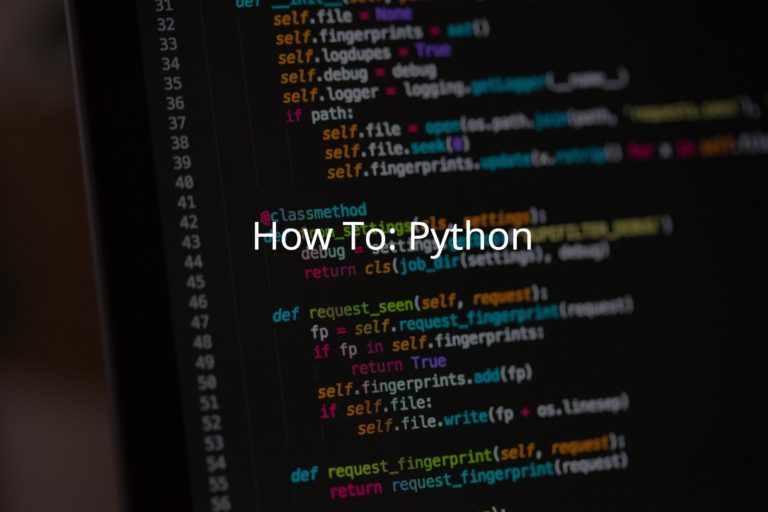List Comprehensions in Python

Sometimes we want to do some very simple operations over the items of a list. Instead of using the same old way of iterating through lists, we can make our code simpler by using list comprehensions. Basic syntax To use…

Sometimes we want to do some very simple operations over the items of a list. Instead of using the same old way of iterating through lists, we can make our code simpler by using list comprehensions. Basic syntax To use…

In Python, there are the usual comparison operators: <, <=, >, >=, ==, !=. But one thing Python allows you to do that is not so common is chaining comparison operators more succinctly. Consider the example below using a well-known…

There are basically two ways of merging two or more dictionaries in Python. If you search randomly on the internet, you may find other approaches, but they are either inefficient computation-wise or just bad practices. How to do it before…

Slicing is one of the most useful tools in the Python language. As such, it is important to have a good grasp of how it works. Basic Notation Let’s say we have an array called ‘list’. list[start:stop:step] start: where you…

The dictionary doesn’t guarantee the order of the elements and is mutable. One important characteristic of dictionaries is that you can set your customized access keys for each element. Initialization of a Dictionary Empty Dictionary people = {} Dictionary with…

In this tutorial, you will learn how to read JSON formatted strings, read JSON files as well as write in files and convert JSON objects into Python objects. A very common task performed by many programmers is parsing JSON –…

The ternary operator is a one-line if statement. Very handy for simple conditions. This is how it looks: <expression> if <condition> else <expression> Consider the following Python code: a = 25 b = 50 x = 0 y = 1…